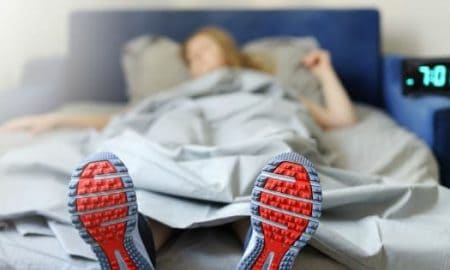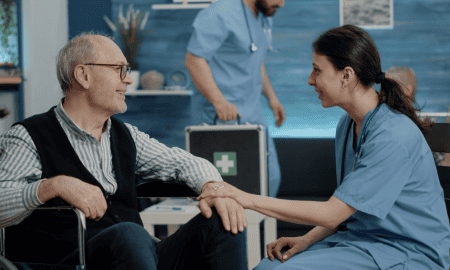
Living with hemorrhoids can be a frustrating and painful experience, marked by symptoms such as itching, discomfort, and bleeding. These issues arise from swollen veins in the lower rectum and anus, often due to straining or chronic constipation.
Thankfully, preventive measures can significantly reduce the risk of developing hemorrhoids. This blog post will explore various lifestyle changes that can help prevent hemorrhoids, along with discussing Hemorrhoidal Artery Embolization (HAE) for individuals facing severe and persistent symptoms.
Dietary Adjustments for Hemorrhoid Prevention
High-Fiber Diet
A diet rich in fiber is essential in preventing hemorrhoids. Fiber helps soften stool and increase its bulk, which makes it easier to pass. Incorporate whole grains, fruits, vegetables, legumes, and nuts into daily meals. Foods such as oatmeal, brown rice, beans, and leafy greens are excellent sources of fiber.
Hydration is Key
Adequate water intake is crucial. Water helps keep stools soft and prevents constipation. Aim for at least eight glasses of water a day. Herbal teas and other non-caffeinated, non-alcoholic beverages also contribute to daily hydration.
Avoid Processed Foods
Processed foods, high in fats and low in fiber, can lead to constipation. Limiting the consumption of fast food, packaged snacks, and sugary treats can improve digestive health and reduce the risk of hemorrhoids.
Regular Exercise
Stay Active
Regular physical activity promotes healthy bowel movements and reduces pressure on the veins. Engage in moderate exercise such as walking, jogging, swimming, or cycling for at least 30 minutes a day. Exercise not only helps maintain a healthy weight but also prevents constipation by stimulating intestinal function.
Avoid Prolonged Sitting
Sitting for long periods, especially on the toilet, can exacerbate hemorrhoid issues. Take breaks to stand and move around if you have a sedentary job. Incorporate standing desks or ergonomic chairs to improve posture and reduce strain.
Healthy Bowel Habits
Respond to Nature’s Call Promptly
Ignoring the urge to have a bowel movement can cause stool to become hard and difficult to pass. Respond promptly to natural urges to prevent straining and potential hemorrhoid development.
Proper Toilet Techniques
Avoid straining during bowel movements. Straining puts pressure on the veins in the rectal area, leading to hemorrhoids. Use a footstool to elevate the feet while sitting on the toilet; this can help achieve a more natural position for bowel movements, reducing strain.
Personal Hygiene
Gentle Cleaning
After each bowel movement, clean the anal area gently. Use moist towelettes or gentle, unscented toilet paper to avoid irritation. Harsh wiping can aggravate hemorrhoids and cause further discomfort.
Warm Baths
Sitting in a warm bath for 10-15 minutes several times a day can provide relief from hemorrhoid symptoms. Warm water helps reduce swelling and soothes irritated tissue.
Weight Management
Excess body weight, particularly around the abdomen, increases pressure on pelvic veins, which can lead to hemorrhoids. Maintaining a healthy weight through a balanced diet and regular exercise reduces this risk.
Stress Management
Stress can contribute to digestive issues, including constipation. Incorporate relaxation techniques such as deep breathing, meditation, or yoga into daily routines. These practices not only help reduce stress but also promote overall digestive health.
When Lifestyle Changes Aren’t Enough
Despite best efforts with lifestyle changes, some individuals may continue to experience chronic and severe hemorrhoids. For these cases, Hemorrhoidal Artery Embolization (HAE) can be a viable option.
What is HAE?
HAE is a minimally invasive procedure that involves blocking the blood flow to the hemorrhoid, causing it to shrink and eventually disappear. This procedure is performed by an interventional radiologist and is typically done under local anesthesia.
Benefits of HAE
HAE offers several benefits over traditional surgical methods. It involves less pain, minimal recovery time, and reduces the risk of recurrence. Patients can usually return to normal activities within a few days.
Who Should Consider HAE?
HAE is recommended for individuals who suffer from severe hemorrhoids that do not respond to conservative treatments. It is particularly beneficial for those who experience frequent bleeding, intense pain, and significant discomfort affecting their quality of life.
Consulting a Healthcare Professional
Before considering HAE, it is essential to consult with a healthcare professional. A thorough examination and discussion of symptoms will help determine if HAE is the appropriate course of action. The healthcare provider can also offer guidance on other potential treatments and management strategies.
Ultimately, the journey to preventing hemorrhoids is not just about avoiding discomfort but also about embracing a healthier lifestyle that promotes overall well-being. Each small change contributes to a larger picture of health, underscoring the interconnectedness of your daily habits and long-term health outcomes. Taking these steps today paves the way for a future free from the pain and inconvenience of hemorrhoids, fostering a sense of empowerment and control over one’s health


















Follow Us